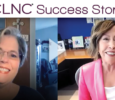We’ve all walked out of an attorney-prospect’s office wishing we hadn’t said that one stupid thing. Read this blog and six CLNC® consultants will share 16 things a Certified Legal Nurse Consultant should never say to an attorney-prospect.
- Never make a promise you can’t keep. Attorneys like to talk about their cases and may spew out loads of information. Don’t be too quick to offer opinions, suggestions or conclusions. It may come back to haunt you. Err on the side of caution and emphasize the need to review the medical records firsthand.
- Don’t profess to know all there is on a topic. Just because you may be a long-term care (LTC) nurse doesn’t mean you’ve encountered all there is to know about the world of LTC. Commit to being a life-long student as Vickie teaches in the CLNC Certification Program.
- Don’t be overly eager to negotiate your hourly rate. Just getting a case is not enough. You want to honor your experience as an RN.
- Never offer a risk-free guarantee that you don’t intend to keep.
– Suzanne E. Arragg, RN, BSN, CDONA/LTC, CLNC
- Don’t volunteer that you haven’t consulted with attorneys before. There are ways to get around the fact that you’re a new Certified Legal Nurse Consultant. If an attorney-prospect asks how many cases you’ve worked on, reply by saying that although you’ve just started your CLNC business, you have “X” years of nursing experience, have reviewed medical records daily for “X” years and know your way around the healthcare system.
- Never offer to do a case without a retainer. If you tell the attorney you don’t require a retainer fee, you’re shooting yourself in the foot. Though you may think that will make the attorney happy, you have no recourse if there is a problem down the road.
- Don’t emphasize that you work a full-time RN job. And don’t emphasize that you can squeeze consulting into your job even if you know you can. Most new Certified Legal Nurse Consultants juggle a full-time RN job and their CLNC business in the beginning. You don’t want the attorney to think her cases are secondary to your RN job. If the attorney knows you have another job, and questions your availability, make sure she knows you always prioritize your work to meet the attorney’s deadlines.
– Dale Barnes, RN, MSN, PHN, CLNC
- Never say, “I’m sorry. I don’t know how to do that.” These words should never be spoken to an attorney-prospect. The CLNC Mentors are always supportive and will assist you with anything you need to learn. I draft my legal nurse consulting report and submit it to LegalNurse.com’s CLNC Mentors. Then I wait for helpful suggestions to improve the quality of my work product. The CLNC Mentors are always encouraging and helpful and that’s no exaggeration.
- Don’t tell an attorney a case is outside of your specialty. With the National Alliance of Certified Legal Nurse Consultants Association, there are myriad experts that a CLNC consultant can subcontract with or call to discuss a case. It’s better to say, “My specialty is medical records and I can review any records you have.” For example: I’m not a nursing home expert, but I’ve been asked to review nursing home records in the past. I communicate to the attorney that I can review and provide complete chronologies on any type of case and that I have colleagues who are experts on nursing home standards.
- Never say you can’t meet a deadline. If you’re serious about being a Certified Legal Nurse Consultant and serious about your reputation, you will do whatever it takes to meet deadlines. When attorneys see that you go above and beyond, they gain confidence in how you can assist in other matters and send you more cases.
One of the first attorneys I marketed to did not use me for several years. After seeing me repeatedly at legal conferences, he contacted me to attend an independent medical exam (IME) for one of his clients. He needed the report for a mediation coming up within two weeks. I promised the report within a week. I went home from the IME and wrote the report while the many details were still fresh in my mind. I sent the report to the attorney the next day. I have received requests on a regular basis to attend IMEs for this attorney and I attribute this to beating a deadline.– Marcia Bell, RN, BSN, CAPA, CLNC
- Never tell an attorney-prospect that you’re nervous. Whether it’s your first case or you’ve never consulted with attorneys before show up with confidence. Also keep it brief when talking about yourself. There is nothing worse than someone rambling about all they’ve done or why they went into nursing 30 years ago.
While mentoring a new Certified Legal Nurse Consultant, she shared an interview experience with an attorney-prospect that didn’t go as well as she thought it should. She described that the interview was going great and the attorney seemed interested in the CLNC services she had to offer. Her specialty was cardiac ICU. The CLNC consultant appropriately asked the attorney what his most challenging case was, but then she blew it. The attorney began to discuss a case involving cardiac bypass surgery and a patient who sustained complications and died. The CLNC consultant failed to ask for specifics about that case (which was her specialty). Instead she started talking about her lack of experience as a Certified Legal Nurse Consultant and how she could help him in general. You need to listen for clues that attorneys give and then relate your own experience and USP to the specific attorney.– Dorene Goldstein, RNC, BSN, CLNC
- Never say no when you’re overloaded. If you’re too busy to work on a case, prioritize your caseload or subcontract with another Certified Legal Nurse Consultant. If an attorney-client asks you to provide a new CLNC service or review a case in which you have limited knowledge and experience, subcontract with another CLNC consultant. Never turn down work.
My wife and I were exhibiting at a defense attorney conference, and while I was taking a phone call away from the booth, two attorney-prospects stopped by the booth and asked my wife if I could review mental health records for a criminal murder case. Without a second thought, she told them absolutely. When I returned to the booth and heard about this new type of case I had never worked on before, I was extremely anxious. Luckily I met with the legal defense team the following week and this one case opened doors to a type of case I had not even considered. - Never say you will reduce your rates. You might be tempted to do so as a beginner. Instead, focus on your strengths, be confident in yourself and attorneys will be confident in you as well.
When I began marketing my CLNC business I focused on my clinical experience, education and training. Even after I gained legal nurse consulting experience and more confidence with attorneys, I continued to focus on my clinical and case management experience. No matter how much legal nurse consulting experience you gain, your clinical experience, education and training will always be your foundation.– Robert Malaer, RN, MSN, PMHN, SANE, CNLCP, CALM, CLNC
- Never tell an attorney-prospect you have no experience. You do have experience as a registered nurse. Don’t showcase the knowledge you don’t have; showcase the knowledge and experience you do have.
- Never ask an attorney-prospect what you can do for them. Attorney-prospects want to know how your nursing experience and knowledge will benefit them. It’s your job to show them how your experience will benefit their medical-related case.
- Never tell an attorney-prospect you only want to work limited hours. I was on a mentoring call with a new CLNC consultant who asked about how to decline too many requests from attorneys. I was surprised that she would ask how to decline work when she hadn’t even started yet. I urged her to not decline any cases, especially in the beginning. There are other Certified Legal Nurse Consultants eager to step in and do the job. If you give an attorney the impression you don’t want to work a lot, the attorney may move on and hire someone else. No matter how busy you are, rise to the occasion as you never know how it will contribute to your business and your CLNC success. Declining requests from an attorney is a path to failure.
– Michelle Neal, RN, BSN, CLNC
Thanks to Suzanne, Dale, Marcia, Dorene, Robert and Michelle for sharing 16 things a Certified Legal Nurse Consultant should never say to an attorney-prospect. Heed their advice and you’ll be setting the stage for obtaining a medical-related case in your next attorney interview.
Success Is Yours,
P.S. Comment and share things you would never say to an attorney-prospect as a Certified Legal Nurse Consultant.









I appreciate these tips and they make a lot of sense. It is important to arrange your words properly too.